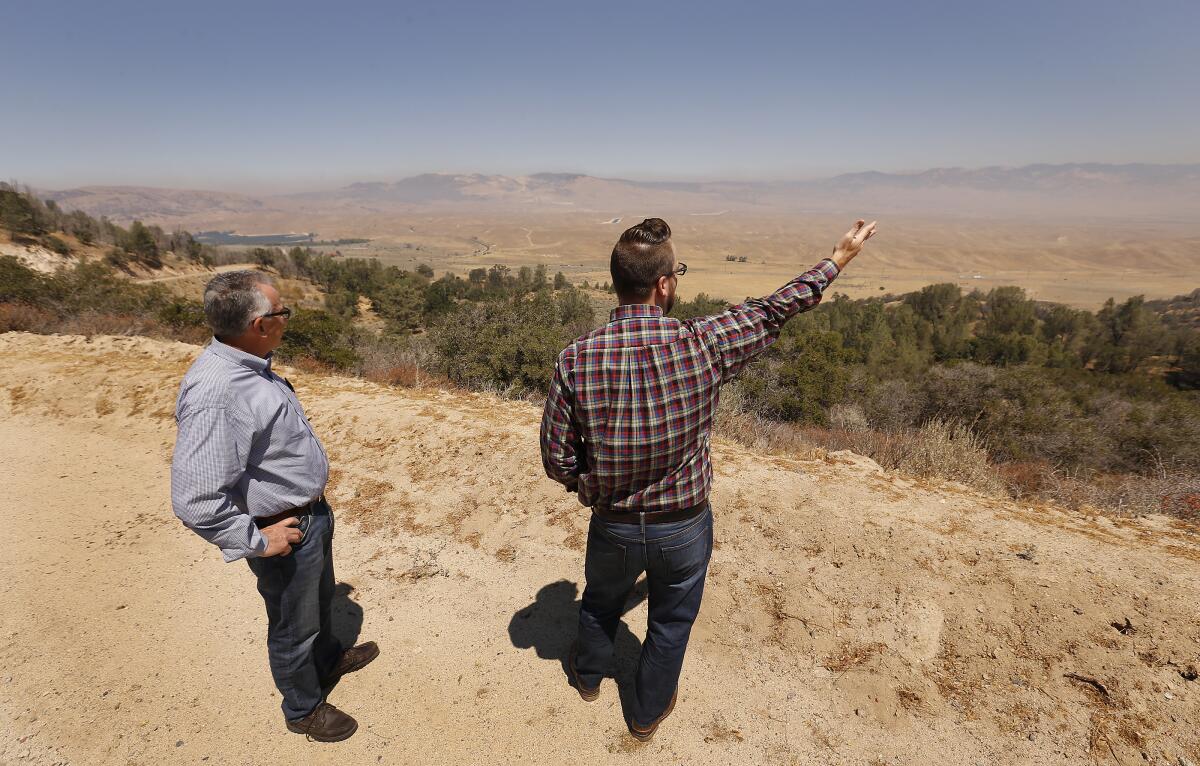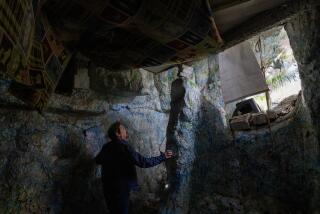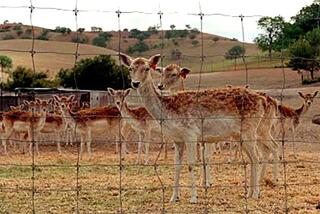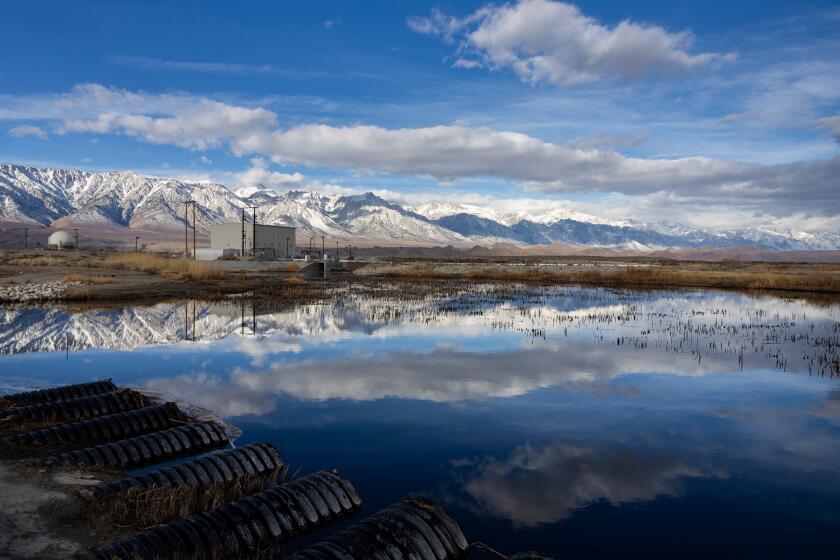A thorny land conservation dispute takes root in the wilds of Tejon Ranch

Environmental groups have filed suit against the Tejon Ranch Co., accusing it of breaching an agreement by withholding funds needed to oversee the conservation of protected lands at California’s largest single piece of private property.
The lawsuit claims the company is failing to make promised payments of about $800,000 a year to the Tejon Ranch Conservancy, a coalition created to conserve 90% of the ranch as wilderness. The 240,000 acres are located in the Tehachapi Mountains, about an hour’s drive north of Los Angeles, and have been set aside for public tours, education and research.
The lawsuit was filed late Wednesday in Kern County Superior Court, said Joel Reynolds, senior attorney for the Natural Resources Defense Council and chairman of the 12-member conservancy board.
“These payments are the conservancy’s lifeblood,” he said. “Without them, the conservancy may be unable to, for example, prevent invasive species from taking root on the property or keep cattle from running roughshod over streambeds.”
He said the lawsuit was filed “with deep regret as a last resort.”

Barry Zoeller, a spokesman for Tejon Ranch Co., defended the company’s action, saying the funds are being withheld because the environmental groups did not “keep their explicit promise not to oppose — or assist others in opposing — our development projects.”
Until that issue is resolved, he added, the funds will be “deposited into a third-party escrow account.”
“It is regretful that the environmental representatives continue to operate the conservancy to the detriment of the ranch and the historic partnership that was created in 2008,” Zoeller said.
The Tejon Ranch Conservation and Land Use Agreement, brokered between Tejon Ranch and environmental groups in 2008, bars development on the pristine lands. The environmental groups involved in the agreement include the Natural Resources Defense Council, the Sierra Club, Audubon California, the Endangered Habitats League and the Planning and Conservation League.
The agreement allows Tejon Ranch Co. to pursue massive development projects on the remaining 30,000 acres of its holdings. The proposed developments include Centennial, a planned community of 19,300 homes on a 6,700-acre area in Los Angeles County that borders Kern County, and Grapevine, a master-planned community in southern Kern County. A third development, Tejon Mountain Village, would include spas, boutique hotels, commercial space, golf courses and estate homes and would be located in southern Kern County.
In exchange for the company’s promise to limit development to those sites, the participating environmental groups agreed not to fight the plans.
The deal protects a region that is eight times the size of San Francisco and remains very much as 19th century frontiersman Kit Carson experienced it.
Its hills and lush valleys remain unblemished by buildings and utility lines. Bears, elk, gray foxes and mountain lions prowl secluded meadows edged with elderberry bushes, fragrant buckeye trees and 11 species of oak. Federally endangered California condors, the region’s prehistoric scavengers, patrol the skies above windswept grasslands studded with incense cedars.
Quite the condor conversion
The company also agreed to provide interest-free loans of about $800,000 a year to fund the conservancy’s key operations — habitat enhancement, infrastructure maintenance, wildfire protection, public tours and fostering scientific field research. The conservancy employs five people.
Under the terms of the 2008 agreement, those loans are scheduled to end in 2021. After that, the conservancy‘s work would be funded through transfer fees from the sales of developments including the company’s Centennial residential properties.

The proposed Centennial development won final approval from the Los Angeles County Board of Supervisors a year ago. But anticipated property sales and construction are still in the planning stages, and the California Native Plant Society and the Center for Biological Diversity filed a lawsuit challenging the project’s environmental impact report. A separate lawsuit filed by the environmental group Climate Resolve against the county claims that automobile emissions from the development, unless mitigated, will threaten California’s climate goals.
In April, the company attempted to amend the conservation agreement’s payment schedule, “citing general concerns about the coronavirus pandemic,” Reynolds said.
The company rescinded that effort a few months later after the conservancy threatened legal action, according to Reynolds.
In October, however, the company began placing payments in escrow, alleging that the conservancy had violated the provision of the agreement prohibiting participants from opposing the company’s development projects.
Specifically, the company cited the participation in 2017 by representatives of several of the conservancy’s environmental organizations in a public process aimed at developing a draft plan called the Antelope Valley Regional Conservation Investment Strategy.
Reynolds, however, argued that a provision of the 2008 agreement “allows signatories to support or oppose such a regional plan.”
The lawsuit asks the court to declare that the conservancy did not violate the agreement and that Tejon Ranch Co. must make payments to the conservancy totaling about $1 million through October 2021.
It would not be the first time that the company has tried to stifle perceived criticism of its development plans.
In 2018, the Tejon Ranch Co. barred members of the nonprofit California Native Plant Society from visiting its protected lands.
That action followed negative appraisals of the potential impacts of the Centennial development on rare plants and wildflowers by Nick Jensen, a conservation analyst for the botanical group.
Although the conservancy’s mission is to preserve, enhance and restore biodiversity at the ranch, it was prohibited by the agreement from taking a public position on the ban.
“We argued against the limitations on access,” Reynolds said, “but the ranch company, as the land owner, wouldn’t hear it.”







